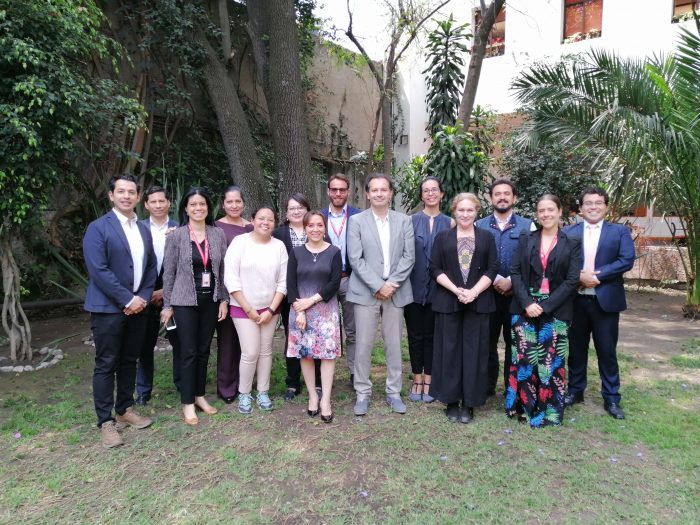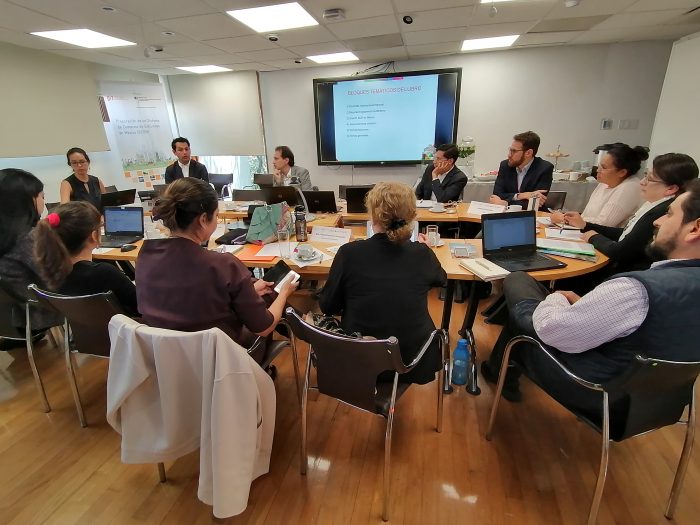Within the framework of the recent launch of the Emissions Trading System (ETS) Test Program in Mexico in January, 2020, the Deutsche Gesellschaft für Internationale Zusammenarbeit (GIZ) GmbH project “Preparation of an Emissions Trading System in Mexico” (SiCEM) is carrying out capacity development activities, dissemination, and dialogue regarding the ETS with various actors. The aim is to work together with public, private, and civil society sectors in order to create an environment conducive to the implementation of an Emissions Trading System in the country.
In this context, together with the Mora Institute and the academic publisher Springer, the SiCEM project is supporting a collaborative effort to write a multi-author academic book on the Emissions Trading System in Mexico. Academics from important national and international research centers will participate in the book. Recently, these researchers were summoned to a seminar to present their progress, as well as to hold an interesting conversation in order to shape the book’s thematic structure.

The seminar was held on March 10, 2020, at the Mora Institute facilities in Mexico City. This institution convened the event, with the support of the SiCEM project implemented by GIZ on behalf of Germany’s Federal Ministry for the Environment, Nature Conservation and Nuclear Safety (BMU). Participants included distinguished universities such as the National Autonomous University of Mexico (UNAM), the Center for Research and Teaching in Economics (CIDE), Anahuac University, the National Polytechnic Institute (IPN), the Autonomous University of Baja California Sur (UABCS), and the Latin American Faculty of Social Sciences (FLACSO). Furthermore, researchers participated virtually from international universities and research centers such as Stanford University, the University of California, and the Alexander Von Humboldt Foundation.

The conversation revolved around different subject areas. Firstly, it was acknowledged that the book needed to contain a section that would contextualize the ETS in the framework of the country’s public policies and compliance with international agendas. The importance of analyzing the legal framework that supports the implementation of the ETS in Mexico, along with its institutional and governance structure, was also discussed. Finally, the discussion covered the design elements of the ETS as well as perspectives that will further strengthen the instrument, as the Mexican ETS transitions from its test phase to the operational phase.
Academic research about the ETS is key to generating analysis and inputs that can strengthen the instrument’s Operational Phase. Thus, the SiCEM project will continue to support promotional activities for this research in Mexico. In the coming months, efforts to build capacities, facilitate dialogue, and develop additional technical studies to strengthen the system’s design will continue to be featured on the “IKI Alliance Mexico” blog.
For more information on this subject, please contact us at: Comercio.Emisiones-MX@giz.de
